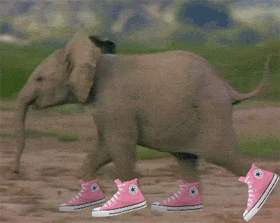
Explore how anxiety can show up in your life, work, and relationships
Read on

My Metaphor for Overthinking
For the first 39 years of my life, I was terrible to my brain. I would engage in deep, intrusive pondering, telling myself that I was working hard to "figure things out." I never realized that the overthinking I was engaging in was terrible for my brain's environment. And this is my metaphor for overthinking: my brain has an environment, and I am responsible for taking care of it.

Riding the Wave: The Single Biggest Thing I've Learned About Anxiety
In the past year and half, I've done a lot of digging and connecting. I've talked to other people with anxiety, and I've learned a lot. But the most important thing I learned is that anxiety is a physiological response involving hormones released in the body.

Anxiety Does Not Make You Better At Work
This is hard for me to say to you: fear of fear and excess cortisol, adrenaline surging through your body does not help you be better at your job or family life. The campaigns you've mounted to avoid hormonal physical punishment may lead you to believe that you are better and stronger as a result of your struggles. That's just YOUR STRENGTH shining out despite an impediment. That's not anxiety's good work. You can be just as good and strong without the ongoing obstacle of the hormone surge. You can be even stronger. Happier.

Gawky is a State of Mind
Gawky is an unavoidable part of the journey. Thinking you can skip over gawky is like thinking you can go from being a child to being an adult without living through perms and braces: it just isn't going to happen.

How Thinking Can Be Like Moonwalking
Something my husband said sparked the insight.
It happened in the middle of a difficult conversation. Not a fight. More of a How-do-I-make-you-understand-me talk. I was stuck, fixating on the details of how one thought led to another. Then suddenly, something he said unstuck me.
"Remember the story Forever Overhead by David Foster Wallace?" he asked. "Remember how the whole thing took place in just two minutes?"

All About Mindfulness
Five instructional pages on mindfulness from someone who really seems to understand how it works.

Watch Out! Your Brain is Listening.
When you make negative statements--even to yourself--your brain is taking notes.
That's why it's important to keep an ear on how you talk to yourself.
Keep the cortisol out of your system. Reform positive neural pathways.
Here's how.

How I’m Learning to Avoid the Second Arrow
Have you ever heard the Buddhist parable of the second arrow? We refer to it a lot in our house. The lesson is: If you’re hit by an arrow (or something bad happens), don’t multiply the pain with negative rumination and blame (and hit yourself with a second arrow).